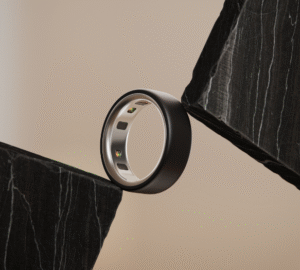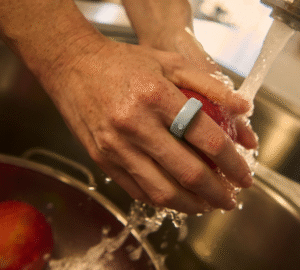We’re thrilled to introduce Tanvi Jayaraman, MD, Clinical Lead of Health AI at Oura.
Dr. Jayaraman bridges medicine, artificial intelligence, and product strategy to advance responsible artificial intelligence (AI) in consumer health. Her work ensures that every Oura feature—whether member- or clinician-facing—meets the highest standards of scientific rigor, usability, and trust.
Before joining Oura, Dr. Jayaraman helped lead AI strategy projects at Bain & Company for global diagnostics and pharmaceutical companies, turning early AI pilots into real-world health products. She also advised digital health startups on product, regulatory, and clinical strategy, and previously worked on Apple’s clinical team, shaping early concepts for next-generation digital health tools.
Dr. Jayaraman earned her MD from Stanford University School of Medicine, where she served as Women’s Clinic Lead at Arbor Free Clinic and completed a healthcare leadership fellowship in the Office of the CEO at Stanford Health Care.
Read on for Dr. Jayaraman’s insights on preventive health, parenthood, and how AI can make healthcare more personal and human.
What drew you to work with Oura?
I’ve always wanted to be the most useful physician I can be, and I’ve always been drawn to preventive health and primary care. In clinical medicine, we frequently discuss shared decision-making, which involves helping patients understand their options and empowering them to make choices that align with their values.
What drew me to Oura is the chance to bring that same philosophy to everyday health. Oura provides people with the insights and context to make informed decisions about their wellbeing and regain control of their own health.
What are you most excited to work on at Oura?
I’m excited to help bridge a gap I’ve seen again and again in medicine: when someone has a health question, they often first turn to a search engine, and only much later, sometimes weeks or months, do they end up with a doctor. That space in between is confusing and stressful, and I want to help Oura fill it with trustworthy, actionable insights.
Done right, Oura can help members feel less alone in that limbo and make the eventual conversation with their clinician even more powerful.
What are the top one or two insights you’ve learned about your own health since using Oura?
Parenthood has made me realize how much recovery matters. My Readiness Score reminds me when to push and when to rest, and I’ve seen how small daily movement—whether a walk outside or playing on the floor with my daughter—can be just as powerful as a workout.
READ MORE: Sleep 101 for New Parents
What do you wish more people knew about their health, which Oura enables them to learn?
I wish more people saw health as something dynamic, not something you only think about when you’re sick or sitting in a doctor’s office. Our bodies are constantly adapting to what we eat, how we sleep, and how we move. Oura helps people tune into that conversation and notice patterns that connect how they feel with what’s really happening inside.
What are one or two of the top ways you believe AI will impact healthcare technology in the coming years?
First, AI will make personalized health truly scalable by transforming data into guidance that feels like it was made for you, not the average patient. Second, it will free up clinicians from some of the paperwork and screen time that weighs them down today, giving them more time for the part of medicine that matters most: connecting with patients.
READ MORE: Introducing Oura Advisor: Your AI-Powered Personal Health Companion
#1 Oura metric or score you look at in the morning?
Readiness Score.
Must-do morning ritual?
A cup of coffee and playtime with my daughter.
Go-to energy hack?
A walk outside while catching up with a friend.
Evening wind-down routine?
Tidy the kitchen and playroom, then play a couple of rounds of Monopoly Deal with my husband.
Surprising side interest or hobby?
My not-so-secret hobby is scouting out the best almond croissant in any new place I explore.
RELATED: The Oura Q&A: Annie Tilton, MD











